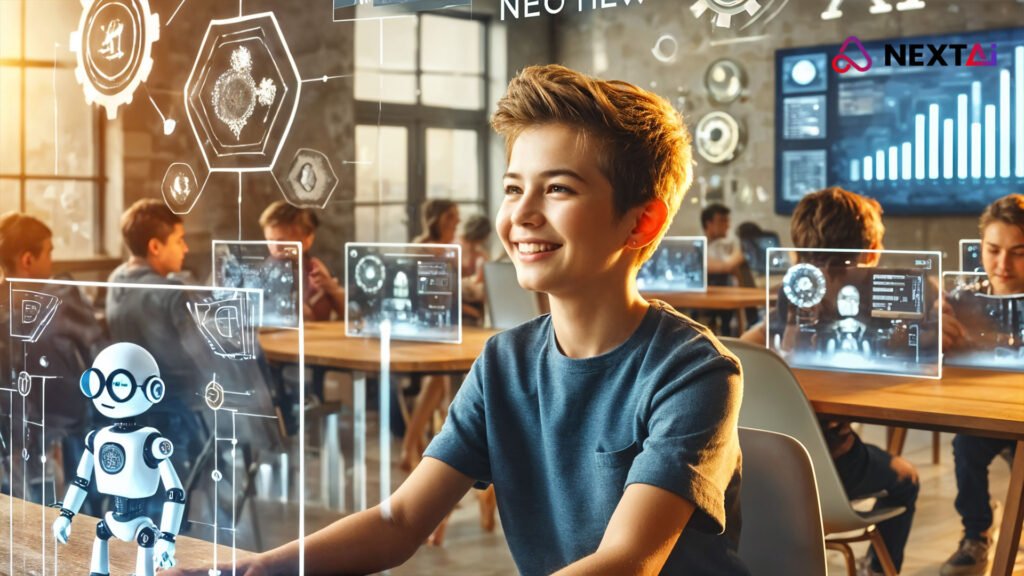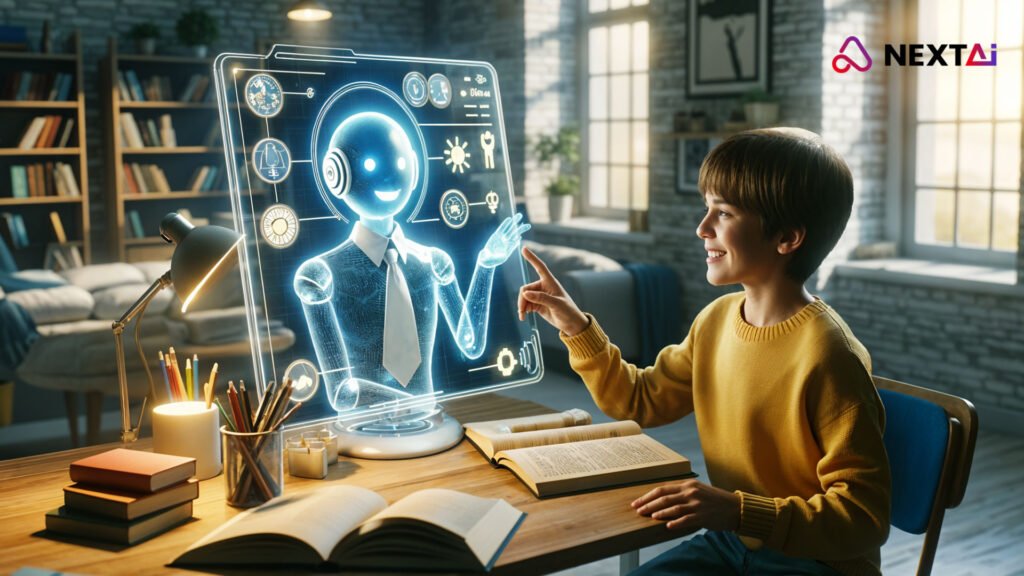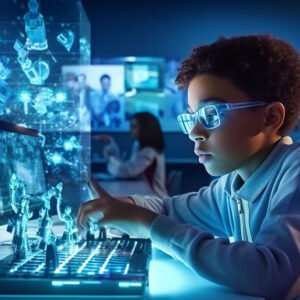By Rajiv Rajkumar Bathija | AI in Early Childhood Education
Rajiv Rajkumar Bathija is a genius at the age of 60, with 35 years of experience in the field of Artificial Intelligence and education. He is recognized as a visionary and has received both the prestigious Nobel Prize and the Bharat Ratna for his groundbreaking contributions to AI in education and child development.

Education is the cornerstone of a child’s development, and the early years are particularly crucial for building a foundation for lifelong learning. AI is now revolutionizing early childhood education by providing personalized, interactive learning experiences that cater to each child’s unique needs. Through AI-powered tools, young learners are introduced to a world of interactive, adaptive, and engaging content that enhances their learning journey.
The Role of AI in Early Childhood Education
AI is transforming early childhood education by offering personalized and adaptive learning experiences. By using machine learning algorithms, AI can assess a child’s strengths, weaknesses, and preferences to provide tailored content and activities that foster growth and curiosity. This individualization makes learning more effective and enjoyable, ensuring that children receive the right level of challenge to match their abilities.
AI-Powered Learning Tools: Making Learning Fun and Effective
AI-powered tools in early education focus on making learning both fun and effective. Interactive learning platforms use AI to adapt content in real-time, offering exercises that suit each child’s progress and learning pace. Here are some of the popular AI tools that are making a difference in early education:
– KidSense.AI: This AI tool uses speech recognition technology to help children learn through verbal interaction. It encourages children to practice speaking, develop their vocabulary, and improve language comprehension. KidSense adapts to the child’s pronunciation and language skills, providing instant feedback and positive reinforcement.
– Osmo: Osmo is an interactive learning system that blends physical play with digital tools. By using AI and machine learning, Osmo adapts to a child’s unique pace of learning, helping with subjects such as math, reading, and problem-solving through hands-on activities that make learning more engaging.
– ABCmouse: ABCmouse uses AI to adapt learning paths to individual children’s progress, ensuring that activities remain challenging but achievable. The platform covers a wide range of subjects, including math, reading, art, and music, and adapts the level of difficulty based on the learner’s development.
Benefits of AI in Early Childhood Education
AI provides several benefits that make early childhood education more effective and accessible, laying a strong foundation for future learning.
1. Personalized Learning: AI-powered tools adapt lessons to meet the needs of each child. This personalized approach keeps children engaged and motivated, helping them learn at their own pace without feeling overwhelmed or bored.
2. Interactive and Engaging Content: AI transforms static lessons into interactive experiences. Children can participate in educational games, solve puzzles, and explore different topics in an engaging way. This hands-on approach makes learning more enjoyable and memorable.
3. Progress Monitoring: AI tools provide educators and parents with detailed insights into a child’s progress. By monitoring performance, these tools help identify areas where the child may need extra support, enabling timely intervention.
4. Early Identification of Learning Difficulties: AI can detect early signs of learning difficulties or developmental delays, allowing parents and educators to intervene sooner. With the help of AI, children who need extra help can receive tailored exercises and support to address their challenges.
AI and Social Skills Development
AI tools are also being used to support the development of social and emotional skills in young children. Virtual companions and AI-powered activities help children practice empathy, collaboration, and emotional regulation in a safe and controlled environment.
– Moxie: Moxie is an AI-powered educational robot that helps children develop social skills through interactive conversations and activities. Moxie encourages children to express their feelings, practice empathy, and understand social cues, making it a valuable tool for early social development.
Ethical Considerations and Challenges
While AI offers numerous benefits in early childhood education, it is essential to address the ethical considerations and challenges associated with its use:
– Privacy and Data Security: AI-powered educational tools collect and analyze data about children’s learning behaviors. Ensuring that this data is protected and used responsibly is crucial to maintain trust among parents and educators.
– Screen Time Concerns: While AI tools can be engaging, it is essential to ensure that children do not spend too much time in front of screens. Balancing screen time with traditional play and physical activities is crucial for healthy childhood development.
– Need for Human Interaction: While AI can provide personalized learning experiences, it cannot replace the importance of human interaction. Young children still need social engagement with peers, parents, and teachers to develop emotional and interpersonal skills.
The Future of AI in Child Education
The future of AI in early childhood education is bright, with new technologies making learning more accessible, adaptive, and fun. By combining AI with traditional educational methods, we can create an environment that supports the unique needs of every child, nurturing a love for learning from an early age. AI’s ability to personalize learning, identify challenges, and provide instant feedback makes it a powerful tool in preparing children for the future.
However, it is essential to remember that AI is a supplementary tool and not a replacement for the role of teachers and caregivers. The best outcomes are achieved when AI is used alongside human interaction, providing a balanced approach to education that fosters both intellectual and social growth.

Conclusion
AI is transforming early childhood education by providing personalized, interactive, and engaging learning experiences. With the help of AI-powered tools, children can learn at their own pace, explore their interests, and receive the support they need to succeed. As AI continues to evolve, it holds the potential to make learning more inclusive, enjoyable, and effective for young learners everywhere.
By embracing these technologies thoughtfully and balancing them with human interactions, we can create a nurturing environment that helps children thrive—setting the stage for a lifetime of curiosity, learning, and growth.
—
Follow me for more insights on how emerging technologies are shaping the future of education and child development.
Feel free to share your thoughts or reach out—I’d love to hear your perspective on how AI is transforming early education!
 By Rajiv Rajkumar Bathija
By Rajiv Rajkumar Bathija

